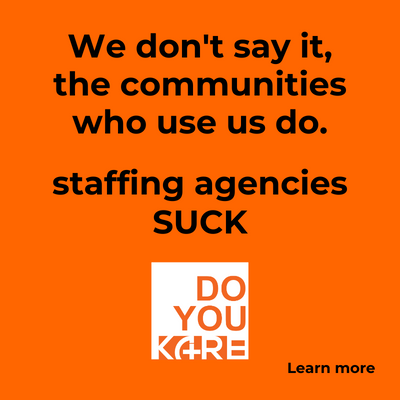By Elizabeth George
Amid explosive competition and declining occupancy, you may be wondering if it’s even possible to change the sales tide until the demographics and demand catch up.
I wanted to know too. I sat down with Russell Rush, Managing Partner of R3R1 Consulting Group (a Senior Living Foresight partner), to find out if – and how – senior living organizations can increase their sales in a crazy competitive market. His answers might surprise you.
EG: Occupancy has been declining over the past few years in large part because of the increase in the number of communities being built – some are saying the industry is overbuilt. Do you believe this trend will continue?
RR: I attended a conference last year in which several senior living CEOs speaking on a panel were asked if they believed the market is overbuilt. To a person, every executive responded “yes”. What was interesting, however, was that each one of the organizations represented is still actively building communities. Sounds counterintuitive, right?
I don’t believe the industry is overbuilt or that more competition has to equal fewer sales. We just need to do a better job of selling and to think about it differently. As an industry, we often assume that seniors want to buy an apartment when, in reality, they need to be sold a solution.
EG: You’ve said that home health care is just as big a threat to our industry as the competition within our industry. What advantages do home care agencies have over senior housing when marketing to seniors?
RR: The rise of home health care over the last several years has been impressive and it’s now taken the form of a movement we know as “aging in place”. There’s no doubt that home health aides along with technology can be a good solution for many seniors but there are many others who need much more care and social companionship than what can be affordably provided in this scenario.
The distinct advantage the home care agency has is that they can acquiesce to the senior’s “prior commitments” to living in their own home and staying there forever. The home health agency doesn’t have to persuade seniors to stay home – they already want that.
The senior housing salesperson, on the other hand, needs to convince seniors on the merits of leaving their homes. Unless that happens, the industry will continue missing sales.
EG: Based on your experience, what do you think most sales professionals need to stop or start doing to succeed in this environment?
RR: Simply put – we need to stop showing a property and start selling a solution. The communities that have been built over the last several years are beautiful and full of wonderful amenities. When I visit an independent or assisted living community and ask for a tour, the salesperson does a great job telling me about the building, the services, dining, transportation, and care. What I’d like to hear more often is why I should use this service and how I’d be better off because of it. Why should I uproot my life and leave a home and a routine I’m familiar with to move into an apartment that is probably smaller than my home and into a situation that may require me to adapt my routines?
Understanding and addressing a prospect’s prior commitments is not something that comes naturally to most salespeople and early on in my sales career, that idea represented my own biggest learning curve. We can all increase our odds of success by remembering that the people we are selling to may be committed to something that conflicts with our solution — and we will only convince them to buy once we’ve addressed this.
EG: What makes you optimistic that the industry can thrive in this environment?
RR: Like most people, I can only sell a product I believe in. Bottom line, we have a product to sell in senior living that helps people live longer and happier lives. With that passionate belief and the tools to sell more effectively, we can succeed in any environment.
EG: What do you think the solution is?
RR: I believe as an industry we need to stop acting as if seniors and their influencers are wanting to buy our service. If we hope to reverse this trend, we need to be ready to make compelling presentations as to the benefits of community living versus staying at home alone with a caregiver.
Learn a proven method to convert more leads to move-ins. Sign up for the R3R1 Science of Selling Academy.










Please shoot holes in what I’m about to contend here, because I’ve expressed the same things before to no avail. Maybe there is a fatal flaw I’m not aware of. I open to hearing what it may be. Here goes:
I marvel at how Marketing Departments do not seem interested in gleaning helpful information from those who are already residents. Sure, Marketing brought those people in, and the Marketing rep THINKS they know the new residents through and through based on the pre move-in relationship. But none of us are later asked, “How do you feel about your decision to move here? Any surprises? — tell us the positives as well as the negatives. What are you telling your friends and relatives about your choice to move into a community, and why here? What was the most difficult aspect? How can we (Marketing) improve in our efforts to bring in your future neighbors?”
I’ve lived in 2 different CCRCs. Neither Marketing Department harvested our thoughts…. no focus groups; no individual discussions; no nothing. Would the above examples be a waste of time? If it weren’t so critical, it would be amusing to read article after article, interview after interview, where Marketing people are supposedly sharing Best Practices, without even mentioning about those already “here.” If your response is “well, it’s obvious that Marketing would ask their own residents.” My reply, with first-hand experience — not!